News broke on Monday about a ban on iPhone imports and sales in China — and as you'd expect, a chorus of analysts freaked out about it immediately. Here's why they're wrong, and that the ruling isn't anything more than a negotiating tool by Qualcomm.
How it started
On early Monday, Qualcomm trumpeted that on November 30, it won a preliminary order in the Fuzhou Intermediate People's Court, banning the import and sale of iPhones with older versions of iOS installed out-of-the-box. The victory was had over software patents that Apple was found by the court to have violated in iOS 11, with the order banning the iPhone 6S through the iPhone X from sale in the country.
"Apple continues to benefit from our intellectual property while refusing to compensate us," general counsel of Qualcomm Don Rosenberg, said in a statement about the matter.
Apple's point of view differed somewhat.
"Qualcomm's effort to ban our products is another desperate move by a company whose illegal practices are under investigation by regulators around the world," Apple said in a statement. "All iPhone models remain available for our customers in China. We will pursue all our legal options through the courts."
Cue panic, with the vast majority of freak-outs completely ignoring the fact that Apple isn't shipping phones with iOS 11, and that the iPhone XR, iPhone XS, and iPhone XS Max weren't banned in any way.
Evolution of the tale
Jim Cramer from CNBC interrupted the day's TV programming on the network at about 1:00 P.M. eastern time, with comments from Apple. In short, Cramer said on the air what AppleInsider said at the time of publication, that the ban was limited to iOS 11, and wouldn't have any material impact to speak of on Apple.
For a short time, Apple stock was in the green in a challenging market. However, a fresh round on analyst input on the matter emerged overnight, seemingly unaware that the "ban" wasn't really one at all, and just an arrow in Qualcomm's quiver to use against Apple in the ongoing legal skirmishes around the world.
AppleInsider has confirmed with sources inside Apple not authorized to speak on behalf of the company that the legal department believes that iOS 12 is the solution to any conceivable patent violation, wasn't present at the ruling at all as it was performed ex parte, has requested the Fuzhou court to reconsider the decision, and has filed a formal appeal to clear the decks of the threat which will allow it to "wipe the precedent from the annals of history."
Qualcomm does not interpret it the same way that Apple does. But, the company complained about iOS 11 with the court, and not iOS 12 in much the same way that it complained about the iPhone 6S through iPhone X. So far, Qualcomm has not responded to AppleInsider's questions for clarifications on the matter.
Chinese courts will ultimately decide the true way. But, regardless of how Qualcomm wants to interpret the ban, the iPhone XR, iPhone XS, and iPhone XS Max aren't listed as banned products.
Analyst reactions
Beyond just the normal "Apple is doomed" prognostications across the internet as a result of the ban, investors and analysts had things to say about it as well. In a note seen by AppleInsider Samik Chatterjee from J.P. Morgan seems to be unaware of the conditions of the ban.
While the injunction in China could drive as much as a ~$0.50 cent headwind to our EPS forecast if continued for a full year, we believe the most likely outcome of the ruling and pending litigations are to drive a faster than earlier expected settlement between Apple and Qualcomm relative to ongoing litigation centered around compensation for Qualcomm's IP portfolio.
There are more like this, but this is the most egregious, because there most likely won't be any notable "headwind" from the ban. Apple seemingly doesn't need to stop selling the iPhones in question, given that they don't ship with iOS 11 anymore, regardless what Qualcomm wants to believe.
Even before Chatterjee had his say, Aaron Rakers from Wells Fargo was a bit more tempered on Monday, with a better handle on the situation.
While we think that Apple could continue to face headline risk in its battle with Qualcomm, it appears that Apple will be largely unaffected by this ruling and we think it is important to consider... It appears on Apple website that all iPhones sold through the Apple Store come with iOS 12 pre-loaded. While uncertainty remains around the news this morning, we think that Apple will be largely unaffected by the ruling.
Rakers also pointed out that the Fuzhou court was the same courtroom that banned some Micron chips in 2018 — which was ultimately overturned.
Cramer himself chimed in after his live discussion about the panic.
"[Apple stock] turned on a dime, rallying $4 bucks from its lows while the show was on. Now, I've scoured the wires — nothing else happened during that period," Cramer said. "I think it's a sign, a sign that jittery, insecure, under-confident traders will take their cue from anything."
Qualcomm stunt
If you're just coming by AppleInsider to read about this, this matter isn't even close to Apple and Qualcomm's first legal skirmish lately.
In a nutshell, Apple first filed a $1 billion lawsuit against Qualcomm in January 2017, arguing that the latter was withholding money as retaliation for cooperation with antitrust investigations. The battle quickly escalated, resulting in suits and countersuits around the world. In September, Qualcomm accused Apple of delivering trade secrets to Intel to improve the performance of modems.
An August settlement over similar matters saw Qualcomm pay $93 million in fines to Taiwan and promise to invest $700 million in the country over five years. Other countries, including the United States, are putting pressure on Qualcomm to end the "double-dipping" as well.
Qualcomm went to Fuzhou for this iPhone sales ban for the same reason that patent trolls go to the US District Court for the Eastern District of Texas — a friendly venue. Qualcomm is following Samsung's playbook from the iPhone design patent trial, and attempting any legal maneuver that will stick anywhere in the world to use as leverage in the iPhone modem legal skirmish.
It isn't clear how much of Apple's sales is from older models in China. However, assuming that it is a 50/50 split of the "banned" models versus the current-year flagships, Apple could be impacted going forward by about $15 billion a year. Qualcomm claims that Apple owes it around $8 billion in licensing fees above and beyond the fees it charges for the modem chips in the first place — which is the crux of the larger legal battle between the pair.
Qualcomm was shady in going to this particular court, doing it without Apple present at the hearing, and arguing for the ban how it did. It should be ashamed of itself. But, we aren't fans of Apple's tactics either. Apple should fulfill its contractual obligations, while it challenges the legality of them in court, and seek recompense later should it prevail.
Apple's tactics aren't hurting consumers, and any ban induced by Qualcomm is — and that's inexcusable.
 Mike Wuerthele
Mike Wuerthele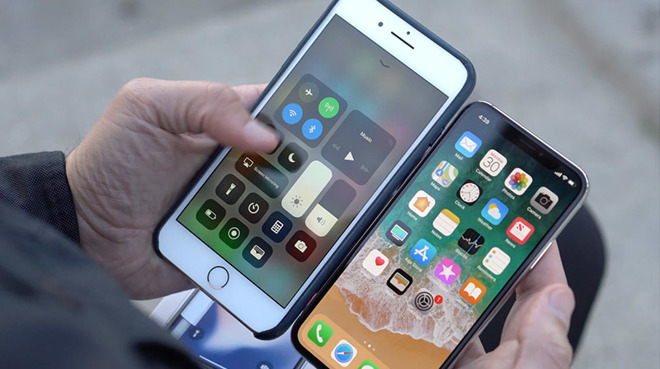







-m.jpg)





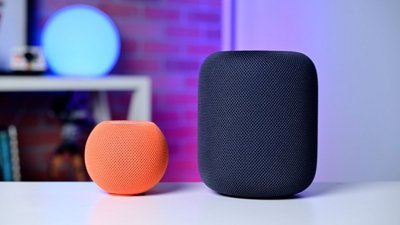
 Andrew O'Hara
Andrew O'Hara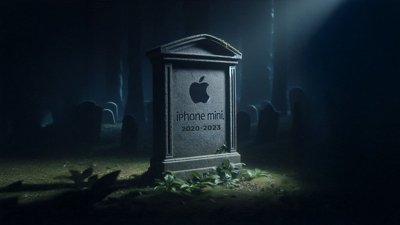
 Amber Neely
Amber Neely
 William Gallagher
William Gallagher
 Christine McKee
Christine McKee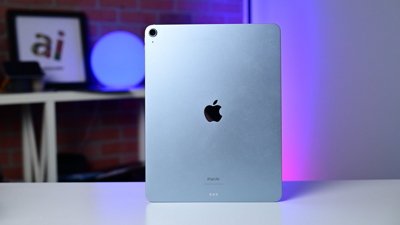
 Andrew Orr
Andrew Orr
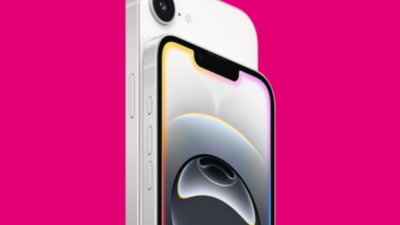
 Sponsored Content
Sponsored Content
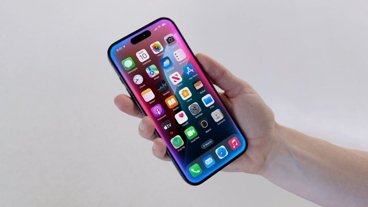

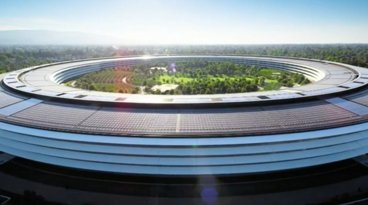






35 Comments
There is a lot of needless investor panic. FTFY.
Yeah. It’s Wall Street. We shouldn’t expect rational thinking. The whole thing is predicated on opinion and gambling.
great article...
Can anyone shed some light on If Apple had to pre-announce an earnings revision, when would be the latest they could wait prior to earnings? Or when are we safe to assume they will hit their guidance?
I think people on both sides are making assumptions about the scope of the preliminary injunction that was issued by the Chinese court. We don't know for sure what it says, unless someone has the text of an order. If so, I'd sure appreciate a pointer to it. Best I can tell, neither Qualcomm nor Apple has come out and said - this, specifically, is what the order says. They've both characterized what it means, but that leaves the question open even if we assume they're being honest in their interpretation.
I can think of a number of possibilities. And the import of the decision could differ based on which one is the case. I think the possible effect on iPhone sales ranges from fairly modest to essentially none, depending on what the court actually ordered and on what it might further decide based on issues Apple will likely now bring up. I have what I consider most likely to be the case, based on some nuance in what Apple representatives have reportedly said. But most of us are just speculating or assuming.